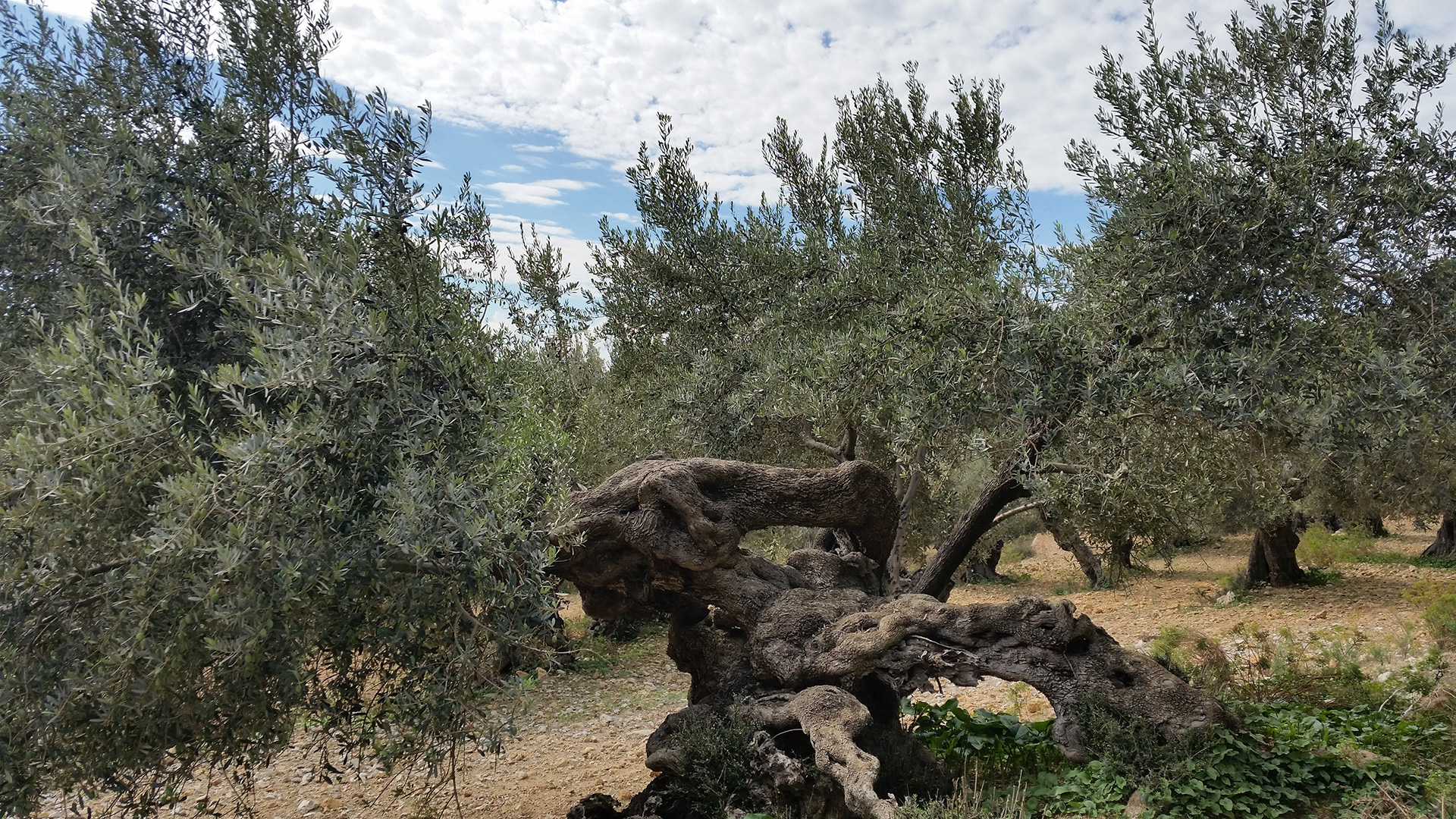
The cultivation of olive trees on hillside terraces
The olive groves on the Tramuntana mountain range follow no regular pattern. They are grown on hillside terraces, typical of this part of Mallorca, that have been built on the mountains’ slopes. In general there is no fixed density to plantations, which vary from 80 to 160 trees per hectare.
Difficult access to these mountain olive groves influences the farming techniques that can be used there. They have a lower yield than olive trees grown on flatter land, as it is more complicated to treat pest disease, fertilize the trees, harvest the crop etc in such areas.
Due to the difficult access and virtual impossibility of using mechanized methods in these areas, the olives are traditionally harvested when they are riper than those picked in flatter areas.
As a result in The Finca Monnaber Nou, this leads to a type of oil that is described as a sweet variety in the corresponding designation of origin, with a mild, sweet taste and no bitter or spicy quality.
Sheep farming
Combining olive growing and sheep farming is a very common practice in Mallorca. Traditionally rural farms have complemented their activities with sheep farming, as these animals adapt well to the climate and conditions of the agricultural land as well as assisting the cultivation of olives. The sheep get rid of the weeds whilst also supplying organic manure that gives the trees a nutritional balance.
The integration of olive growing and sheep farming is beneficial for the environment too, helping to preserve Mallorca's ecosystem, because it minimizes the need for plant protectants and fertilizers and also avoids environmental pollution, particularly the contamination of underground aquifers. From a financial and social viewpoint, combining arable crops and livestock farming on the same land means greater stability and a high earning capacity for the farm, thus contributing towards the maintenance of this type of business activity over the years.



